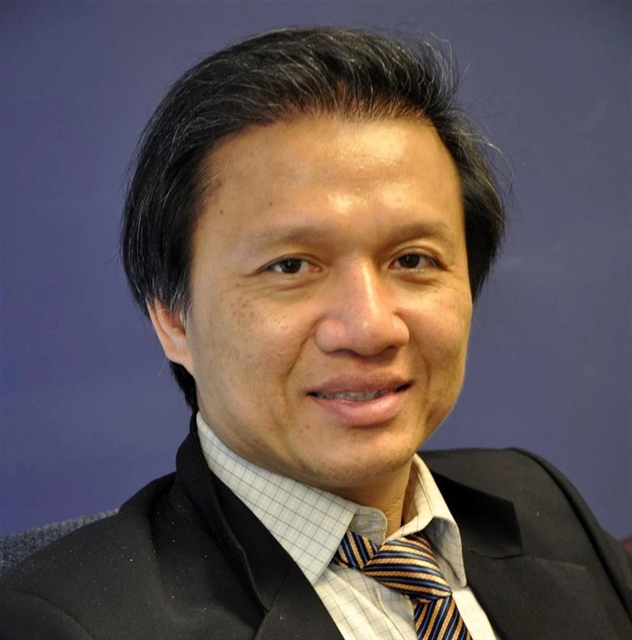 Society
Society

 |
| A HCM City kindergarten offers outdoor physical activity courses for students. — VNS Photo Nguyễn Diệp |
HCM CITY — A new regulation requiring all-day schooling for secondary students has sparked frustration among parents in HCM City, who say sudden changes in timetables have disrupted family routines and weekend plans.
The most common complaint concerns earlier dismissal times, which clash with parents’ working hours.
Tuyết Mai, whose daughter just entered Grade 6 at the Sài Gòn Practice High School under Sài Gòn University in Chợ Quán Ward, said she now finishes at 3:55pm.
“My husband and I don’t get off work until 5pm, so we have to take turns leaving the office early to pick her up,” she said.
Before, different grades were dismissed at different times, but now everyone leaves at once. It takes her over half an hour just to exit the school gate, she said.
Parents are also upset about newly introduced Saturday morning classes.
Minh Hùng, whose son is in Grade 9 in an integrated English programme at the same school, said his child now has five mandatory lessons every Saturday.
“It cuts into rest time and our family weekends,” he said.
A group of parents submitted a petition opposing the Saturday schedule but have not received an official reply.
Most secondary schools in central districts have added Saturday lessons this year.
A vice principal of a high school in Thủ Đức Ward explained the move: “Starting this academic year, all-day schooling is compulsory for grades 6–12. We must provide five to 11 sessions per week, but no more than seven periods a day.”
To fit in both the national curriculum and school-based programmes, Saturday sessions are often unavoidable.
HCM City’s wide range of special programmes — from integrated English and advanced informatics to pilot AI teaching — has made scheduling even more complex.
 |
| Preschool students in a STEM class at a kindergarten in HCM City. — VNS Photo Nguyễn Diệp |
Creative responses from schools
Facing these constraints, several principals are finding flexible solutions.
At Hùng Vương High School in Chợ Lớn Ward, the day now begins at 7:30am and ends at 4:05pm.
Trương Thị Bích Thủy, Principal of Hùng Vương Senior High School, said the school reduced lessons to four in the morning and three in the afternoon.
“To avoid Saturday classes, we shifted some subjects like Informatics and Career Guidance online,” she said.
This hybrid model ensures students still complete the curriculum.
Nguyễn Du Secondary School in Bến Thành Ward has continued to teach strictly Monday to Friday.
School principal Cao Đức Khoa said core lessons account for 29.5 periods a week.
By arranging seven lessons per day, the school creates room for six additional periods for school-designed programmes.
“Saturday mornings are only for optional workshops or life-skills sessions, not regular lessons. We also offer voluntary after-school arts and sports clubs to help working parents.”
At Vân Đồn Secondary School in Xóm Chiếu Ward, only students in intensive or integrated English classes attend Saturday lessons.
Other enrichment activities such as STEM or life-skills sessions are voluntary and often held after school to give parents more flexibility.
In some wards, schools have adjusted start and end times to reduce stress.
Quang Trung Primary School in Tam Thắng Ward pushed its first period to 7:30am, 15 minutes later than before.
Trần Thị An Pha, principal of the school, said this gave children more rest and time for breakfast, while dismissal times were moved slightly earlier to help parents avoid rush-hour traffic.
For the 2025-26 school year, the city’s Department of Education and Training has instructed all schools to implement the two-session model but stressed that they must use existing facilities efficiently and avoid overburdening students.
The department’s deputy director, Nguyễn Bảo Quốc, said schools must “rectify the situation of improper extra teaching, improve the quality of regular lessons, and ensure fairness in access to educational services.”
“Any activities funded by social contributions must be voluntary, transparent and lawful."
The department also encouraged schools to diversify teaching methods, combining classroom learning with group work, self-study, and outdoor activities, and to use multi-purpose rooms and libraries more effectively.
While the shift to full-day schooling is intended to raise education quality, the transition has revealed the challenges of balancing official regulations with parents’ expectations and the city’s packed curriculum.
Schools that communicate openly and adopt flexible approaches, parents say, are making the adjustment far smoother. — VNS




